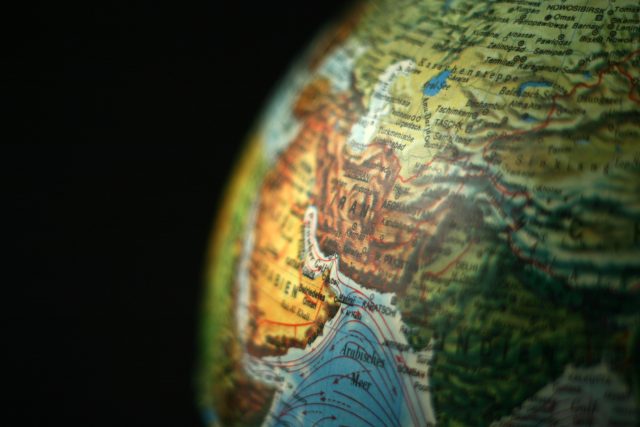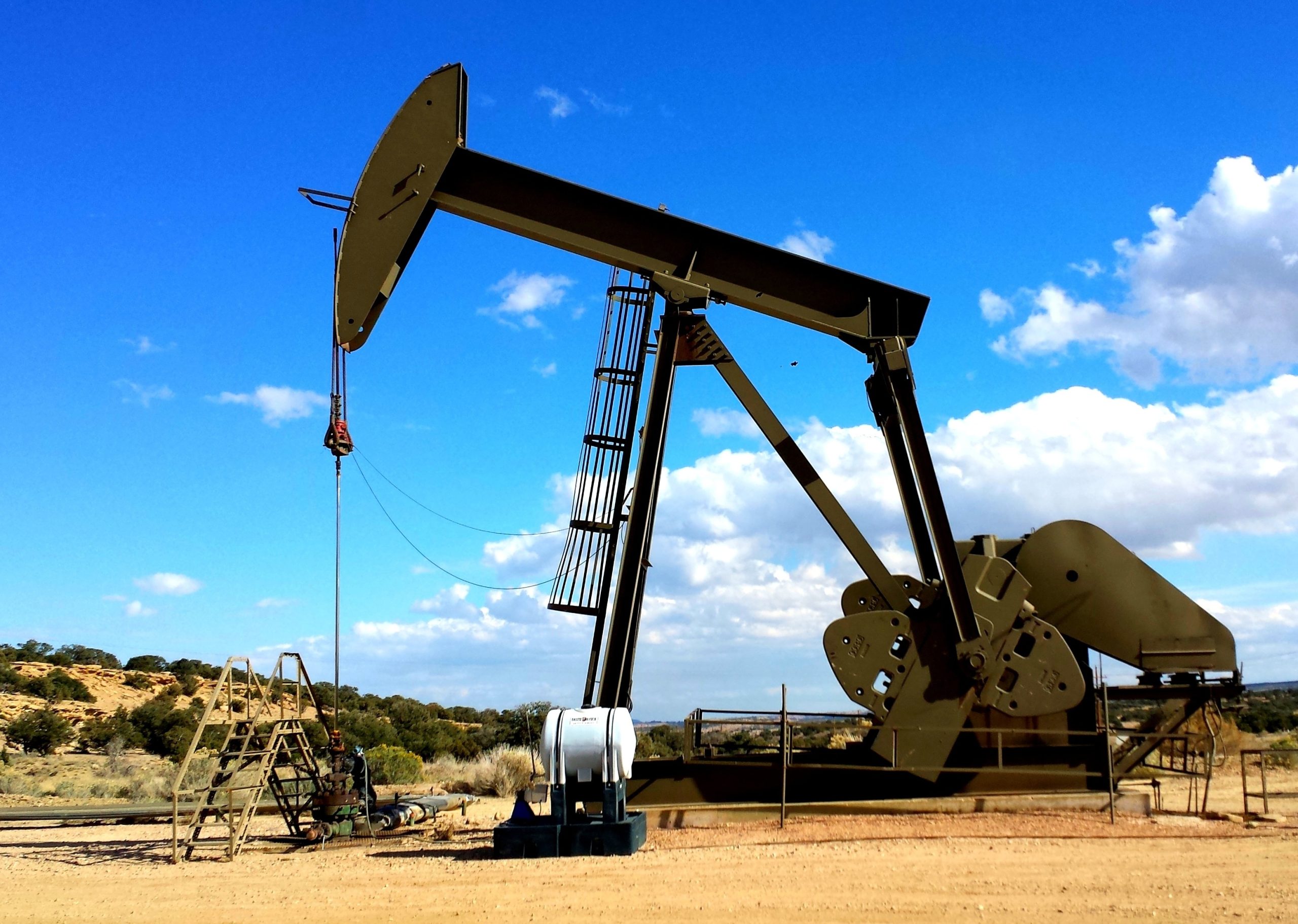
A week after Iran’s first alleged attack on Israel, the latter’s response – expected by military analysts – has yet to take place. But several countries – including the US and the European bloc – have already announced their intentions to tighten sanctions on Tehran. After the “decapitation” of Tehran’s missile programme, an embargo on Iranian oil is likely to follow.
Scenarios for the evolution of the conflict between Israel and Iran range from a tactical Israeli attack on what is considered Iran’s nuclear programme to an even wider expansion of the war that has already been going on in the Middle East for more than six months. What is certain is that, while promising tough sanctions on Tehran, world leaders, including the White House – which has pledged its “ironclad” support to Israel – are urging it to hold back. All the while, in order to “subdue and weaken Iran”, at Israel’s request, the Islamic Revolutionary Guard Corps (IRGC), i.e. the elite forces of the Iranian army, could be declared a terrorist organisation by the world’s states. The White House already did this in 2019 under Donald Trump, and there are several countries – including France and Germany – that have expressed that such a measure would be necessary. All these sanctions are necessary not only to diminish Iran’s ability to act in the Middle East war – directly or by proxy, the terrorist organisations that have launched attacks, in recent months on Israel – but also to prevent it from further assisting Russia in its war against Ukraine.
Middle East conflict escalates
On the 13th of April, Tehran fired 200 rockets at Jerusalem, most of which were intercepted before hitting Israeli territory. This is virtually Iran’s first direct attack on Israel and, according to the authorities in Tehran, is a response to the attack on the Iranian consulate in Syria in which seven members of the Revolutionary Guards Corps (IRGC), including two generals, were killed. The attack in Damascus on th 1st of April has not been attributed to Israel. Iran’s attack on the 13th of April was followed by another, launched by Hezbollah, in the north and a counter-attack – unconfirmed by Tehran – on Isfahan, an area of Iran where a powerful military base and nuclear power plant are located. Each of these had limited effects and no loss of life, and although they have been described as demonstrations of force by one or other of the actors involved in the conflict, they look more like a series of successive revenges. The Israeli army chief of staff, Lieutenant General Herzi Halevi, has announced that the Iranian attack will not go unanswered, but Israel appears to have countered for now with only a strong diplomatic offensive. Iranian President Ebrahim Raisi said Tehran considers the episode over if Israel does not retaliate and threatened a “severe, extensive and harsh response” against any action against the interests of the Islamic state. Both the US – Israel’s main ally – and the Russian Federation – a Tehran ally – have urged restraint.
“Let Israel accept victory,” said US President Joe Biden.
“Vladimir Putin expressed hope that all sides will show reasonable restraint and prevent a new round of confrontation fraught with catastrophic consequences for the entire region,” the Kremlin said.
As for Iran’s attack on Israel, Tehran’s state media claimed it was a vindictive operation, which it considers successful. Iran claims it wanted to demonstrate force, not exert force. In other words, it wanted to show that it is capable of countering Israeli defences without resorting to allies in the region.
In fact, this is also the main purpose of the Iranian missile programme, which is a deterrent and attack arsenal, both pre-emptive and responsive. Tehran has opted to develop ballistic and cruise missiles as its main means of deterring its adversaries, given its limited land and naval capabilities and very limited air forces in terms of quantity and quality. But the missile programme is also a component of Iran’s nuclear programme, because to have an effectively operationalised nuclear bomb you also need launch platforms to deliver it to its target, namely ballistic and cruise missiles, experts say. Iran’s missile programme has been the subject of some of the toughest sanctions imposed on Tehran in the past decade.
Iran has repeatedly been accused of serious human rights violations, including restrictions on the right to free expression and peaceful assembly and systematic discrimination against women in both public and private life, but it has also been accused of over-arming and criticised for a lack of transparency about its plans in this area. From embargoes on arms deliveries to monitoring Iranian banks to ensure they do not get involved in financing the nuclear programme, sanctions have been imposed on Tehran systematically in the United Nations Security Council. The latest sanctions – issued to protect security in the region and beyond – have targeted deliveries of equipment, goods, technology and ballistic missile components. The European Union has been acquiescing to these sanctions since 2011. Since then, the restrictions have been renewed and even tightened as they expire.
After Iran’s attack on Israel – oil prices have risen significantly
After the Iran attack, Israel urged its allies to sanction Iran’s missile programme, as UN restrictions expired last October. Some countries – including the US, UK and EU – have maintained those restrictions and even tightened them. The head of Israeli diplomacy, Eli Cohen, has also called for the Revolutionary Guard – a powerful force not only militarily but also economically in Iran – to be declared a terrorist organisation. While the US has already done so since 2019, other countries – like the UK are still hesitating. Among the states most determined to agree to this measure is Israel’s main European ally, Germany.

US National Security Adviser Jake Sullivan said the new sanctions sought against Tehran would target its missile programme, the Revolutionary Guards and the Iranian Ministry of Defence, and stressed that the US example would be followed by its allies and partners coming up with their own sanctions.
A second important component of the sanctions to come could be oil, US Treasury Secretary Janet Yellen argued.
“We don’t preview our sanctions tools. But in the discussions that we’ve had, all options to disrupt terrorist financing in Iran continue to be on the table. Clearly, Iran continues to export some oil. We may be able to do more,” US Treasury Secretary Janet Yellen said recently.
Moreover, since the attack on the 13th of April, oil prices have risen significantly. Janet Yellen pointed out that the sanctions imposed by the US already provide for an almost total embargo on trade with Iran, measures which have been taken to isolate Iran and weaken its ability to finance proxy groups and support Russia in the war in Ukraine.
European Union countries are also considering imposing new sanctions on Iran. European diplomacy chief Joseph Borrell said recently that some member states have already asked for existing sanctions to be extended. After a video conference with EU foreign ministers, Borrell told the press he would send a request to the European External Action Service to start work on imposing new restrictive measures. According to the head of European diplomacy, the restriction on the supply of drones to Russia and missiles – and possibly even on supplies – to Middle Eastern interlocutors would be extended. Germany and France, as well as other Member States, have already publicly supported these proposals, added Joseph Borell.



 Subscribe
Subscribe